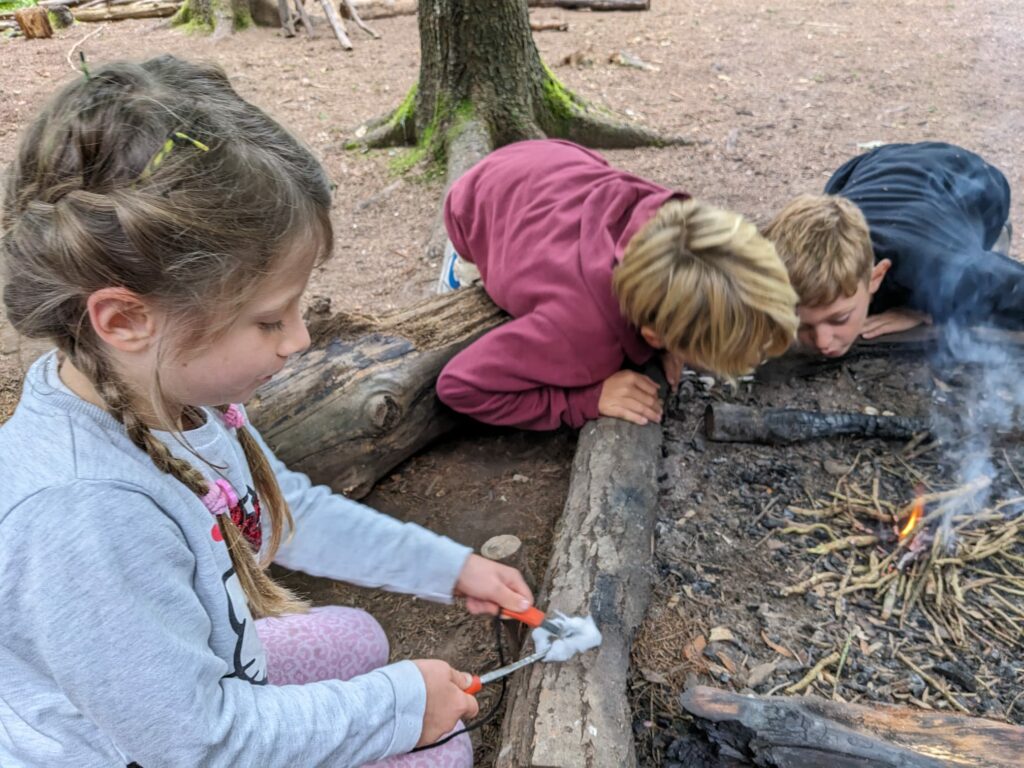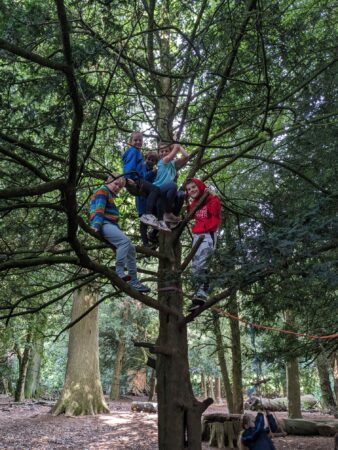
Often the summer holidays bring with them a lot of conversations about the role of boredom in childhood as children who are used to being in school 5 days a week suddenly find themselves with 6 weeks of empty days ahead of them. Obviously, lots of families go on holiday and many Mums and Dads up and down the country tie themselves in knots thinking of fun days out and activities to do. But for those parents trying to juggle work and kids (and there are a lot of us), it’s inevitable that there will be more days than we’d like where we’re stuck working, and the kids are left to their own devices.
Often cries of ‘I’m bored’ and ‘I don’t know what to do’ float up the stairs, much to our frustration and dismay. I don’t think I’m alone in having spoken to friends who all agreed that we don’t remember being bored as children but that we also don’t remember being constantly entertained by our parents or carers. So, what’s changed? I’m not an expert (by any stretch of the imagination!) but I’d hazard a guess that there are a few contributing factors.
We often talk about the current generation of children being overscheduled and perhaps this plays a part in it. With breakfast and after school clubs to accommodate working parents and a veritable smorgasbord of extracurricular activities, it’s not uncommon for children to be at several after school or weekend clubs each week. Whilst these are obviously a fantastic tool in helping young people discover what they’re interested in and where their skills lie and we’re really lucky to have such an amazing array of options for them to explore, it’s easy for the balance to tip in favour of organised activities rather than unscheduled time at home.
Perhaps it’s the proliferation of screens, from mobile phones to tablets to game consoles and TV, most of our households easily hold at least half a dozen devices. Again, this is not bashing the positive benefits that screens can have, from connecting people around the world, to making self-directed research easier, to the creativity and hand eye coordination that many video games require. But, we also all know how addictive screens can be, let’s face it – most of us have probably wasted a fair chunk of time doom scrolling this week already! So perhaps this contributes to the lack of inspiration on what to do when children are faced with more free time than they are used to.
I’d also argue that maybe, more time indoors is partly to blame. Often our children or their friends go to schools that they have to drive to and as a consequence, their mates don’t live on the same estate, within easy walking access. For many reasons, our lives are more silo-ed and reliant on cars than I think they were 20 or 30 years ago. A lot of our children don’t have the same ability to walk out of the front door and meet friends to play, the roads are busier so maybe we feel less safe letting them do that, they don’t know anyone in the area, we live too remotely…there are a lot of reasons for this. But that means if we have to work, they are spending more time indoors than previous generations did.

Which leads me, rather predictably, to praising our Holiday Clubs for what they offer young people in Devon. Given how most of our sessions are fully booked for the rest of August, this isn’t a sales pitch – I promise! More a musing of why their popularity has skyrocketed over the last few years. I think it’s a combination of factors but getting outdoors for 6 hours, whatever the weather, is definitely one of the things that appeals to many of our attendees who come time, and time again.
Another huge attraction is obviously the freedom that Forest School offers them. For an entire day, they are in charge of what they do, how they do it, and when they do it. Whilst there are always activities (such as firelighting, den building, woodworking, campfire cooking, nature hunts, crafts…etc) on offer, nothing is mandatory and the young people attending can make their own decisions about how they spend their time. And whilst at home, this might be something they struggle with, when in the woods, with other kids, and invitations to play everywhere – something magical happens and their imaginations go into overdrive as they create fantastic games and go off to explore under their own steam!
Add onto that, the friendships they form, the things they make, the games they play, the fact that all food cooked over a campfire tastes better than anything cooked elsewhere, and the new skills they can learn and we’re apparently onto a winning formula! It’s such a pleasure, and a privilege to watch that boredom transform into an embracing of freedom and for the shouts of joy and sounds of laughter to ring out throughout the woods as every day, a new group of kids enjoys being wild in the woods!
Author: Hannah Durdin, Content Officer & Forest School Leader
Date: Thursday 10th August 2023
Copyright © Outdoors Group Ltd 2021. All Rights Reserved.
Registered Office: The Outdoors Group, Western Lodge, Crediton, Devon, EX17 3NH. Company number 10755829
Terms & Conditions / Website Terms / Privacy Policy / Sitemap / Built with ♥ by Solve
2 responses
Love this. I am always amazed and forever grateful for how the forest/woods turn boredom into freedom!
I often had feelings of guilt when I wasn’t sending my child to every after school club like some of her friends (I know for some it’s important/they don’t have options etc). I’m now comfortable with the decision and hopeful that she embraces quiet time to just be, because so many of us adults have to try so hard to do this through years of fast paced ‘what’s next’
Thanks so much for taking the time to share your thoughts with us 🙂
It’s so hard isn’t it deciding the best thing to do for our kids but it sounds like you’re absolutely smashing it! Yes, many of us adults are not great at slowing down and being still so what a gift for her to gain those skills at a young age.